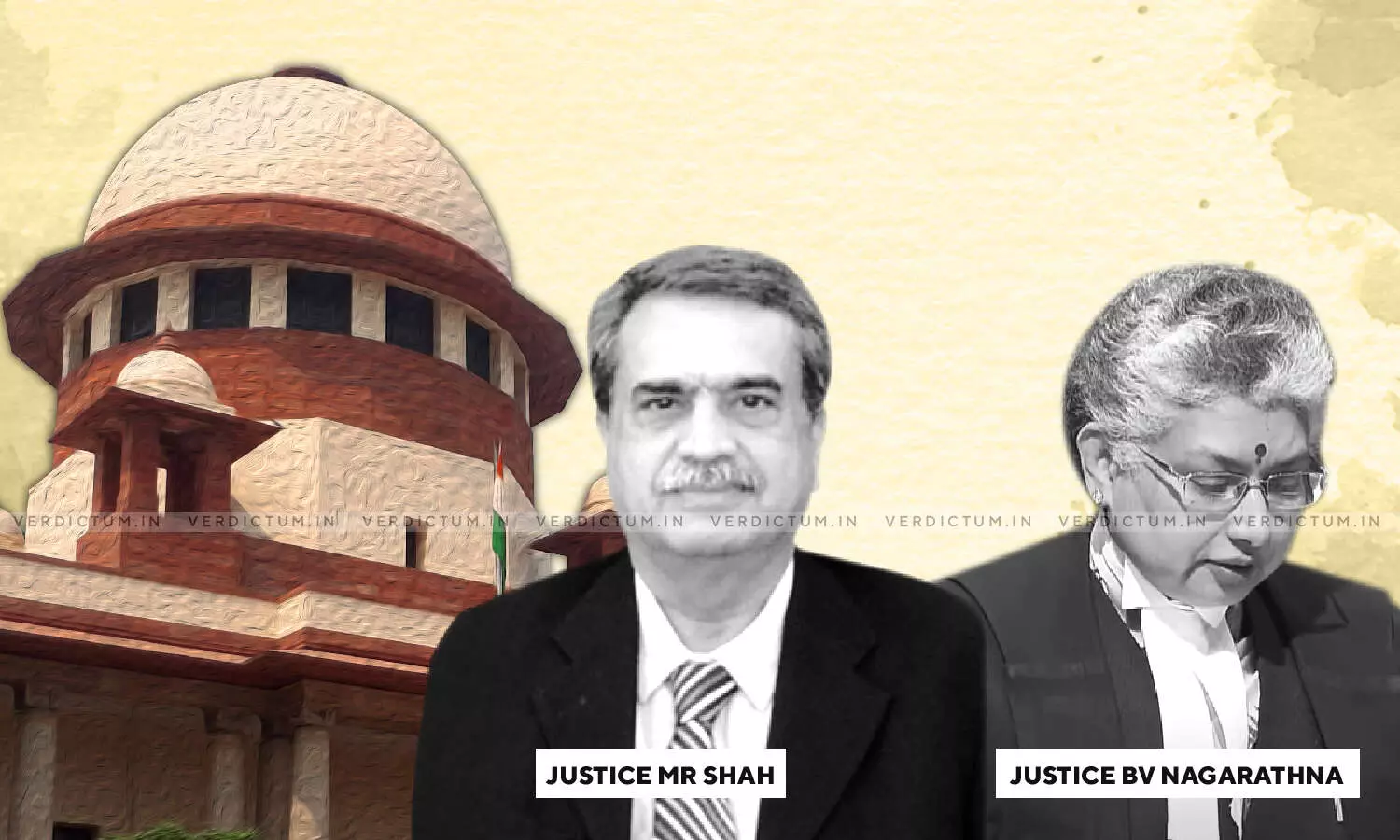
Article 226 – High Court Cannot Interfere When Conscious Decision Is Taken By Disciplinary Authority - SC Reiterates
 |
|A two-judge Bench of Justice M.R. Shah and Justice B.V. Nagarathna quashed and set aside an order passed by the Bombay High Court regarding the dismissal of an employee from service.
Mr. Rajiv Shukla appeared on behalf of the Appellant and Ms. Suruchi Suri appeared on behalf of the Respondent.
The Respondent had been initially appointed by the Appellant as a casual employee, and then later sought to change his role, for which he mentioned he had passed Secondary School Leaving Certificate. The Appellant appointed him to the new role. At a later stage, the Appellant received a complaint that the Respondent had secured his new role by submitting a false and forged SSLC, and a complaint was also made to the police authorities.
The Appellant made multiple requests to the Respondent to submit the original SSLC, but the Respondent made excuses and continued to evade the submission of the certificate. When the Appellant approached the Secondary Board, it was informed that the registration number submitted by the Respondent belonged to some other student.
A departmental inquiry was initiated against the Respondent, where two counts of grave misconduct were found against the Respondent. On having the Respondent agree with the findings and considering the gravity of the misconduct, the Disciplinary authority imposed the punishment of dismissal from services. The appeal of the Respondent was dismissed. The Trial Court acquitted the Respondent on the criminal charges by giving him the benefit of doubt, on the ground that the original SSLC was not brought on record.
The Respondent moved to the High Court when he submitted that his admission of alleged guilt of misconduct was only made on assurance of a lenient view being taken by the authorities. He further argued that there was no minimum educational qualification or age limit prescribed for the role, and therefore it could not be said that he had submitted a forged certificate with the intention of securing the role. He contended that there was no dishonest intention and that he had a good service record and the first charge of insubordination was not established as the Criminal Court had acquitted him.
The High Court held that the punishment imposed upon the Respondent was grossly disproportionate and that the Appellant must reinstate the Respondent to his original position, however, without any back wages or other benefits. Dissatisfied with the order of the High Court, the Appellant moved Supreme Court.
The Supreme Court opined that the action of submitting a fake certificate is grave misconduct, and the employer cannot trust such an individual in the future, and therefore the intention behind submitting such a certificate was immaterial. Therefore, the Bench held that the Disciplinary Authority was justified in imposing the punishment of dismissal.
The Bench opined that apart from the bald statement, there was no evidence of the assurance that a lesser punishment will be imposed.
Further, the Bench held that the Respondent's unwillingness to cooperate with the authorities towards obtaining information about the validity of the SSLC showed mala fide intention on his behalf
The Bench also observed that the Respondent's acquittal by the Criminal Court was invalid once he had admitted to producing a fake and forged certificate. The Court observed that the High Court did not give any reasoning on how the punishment imposed was disproportionate to the misconduct.
The Bench went on to say that "As per the settled position of law, unless and until it is found that the punishment imposed by the Disciplinary Authority is shockingly disproportionate and/or there is procedural irregularity in conducting the inquiry, the High Court would not be justified in interfering with the order of punishment imposed by the Disciplinary Authority".
Further, the Bench held that the Respondent was not entitled to any back wages, as he was working another job during that period.
Regarding the jurisdiction of the High Court in the matter, the Bench opined that "when a conscious decision was taken by the Disciplinary Authority to dismiss him from service, the same could not have been interfered with by the High Court in exercise of powers under Article 226 of the Constitution of India. The High Court has exceeded in its jurisdiction in interfering with the order of punishment imposed by the Disciplinary Authority while exercising its powers under Article 226 of the Constitution of India."
Therefore, the order passed by the High Court was quashed, and the order passed by the Disciplinary Authority dismissing the Respondent from service on the misconduct was restored.
Click here to read/download the Judgment